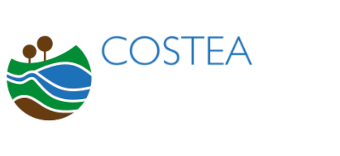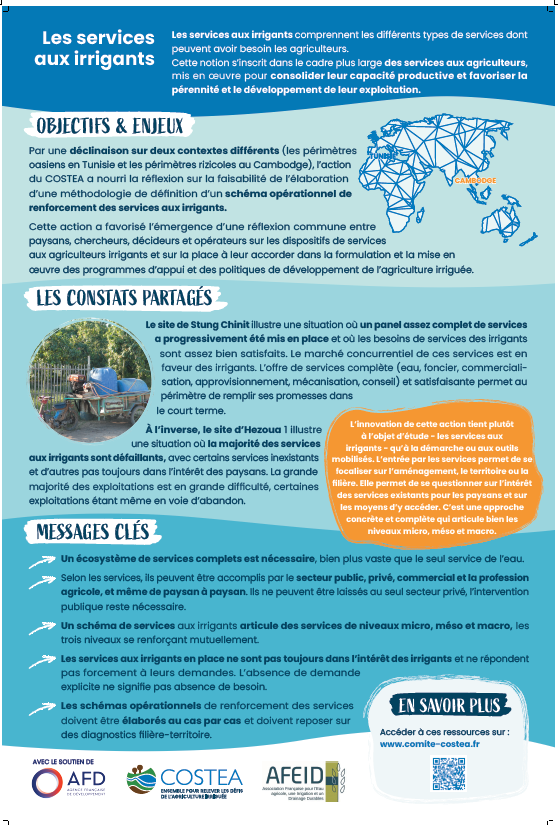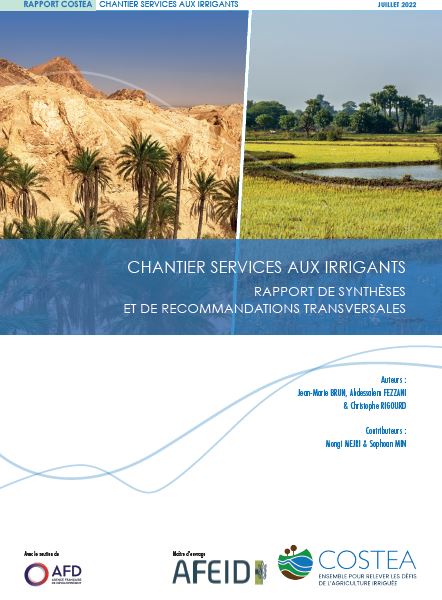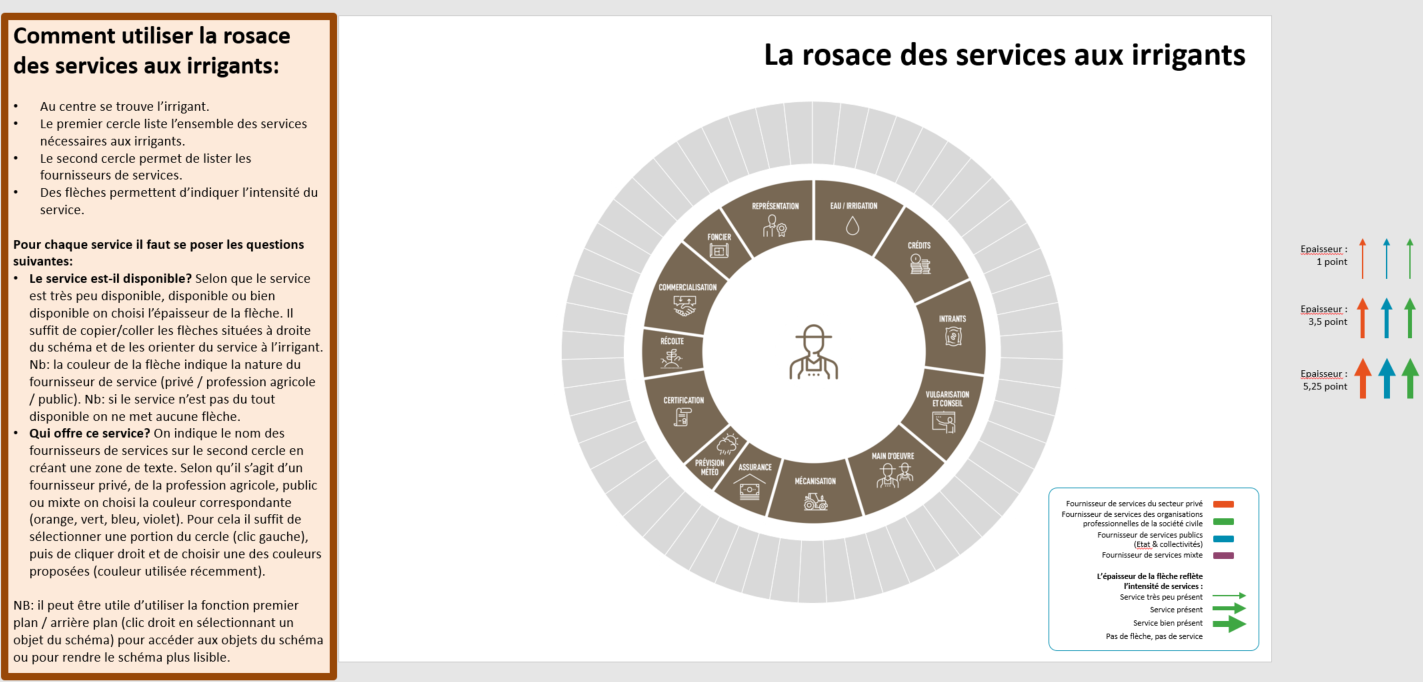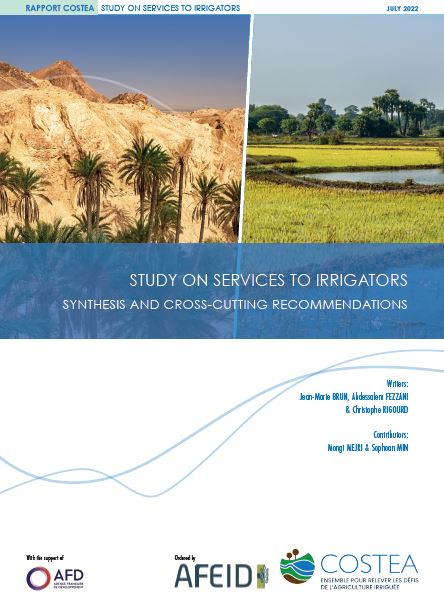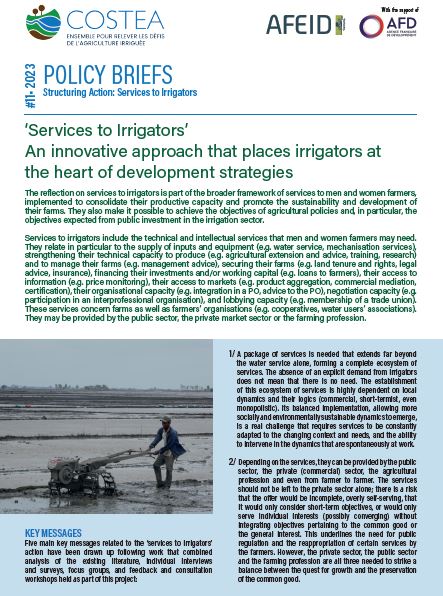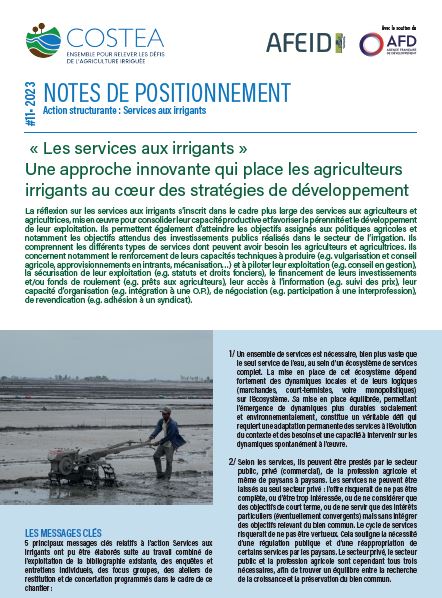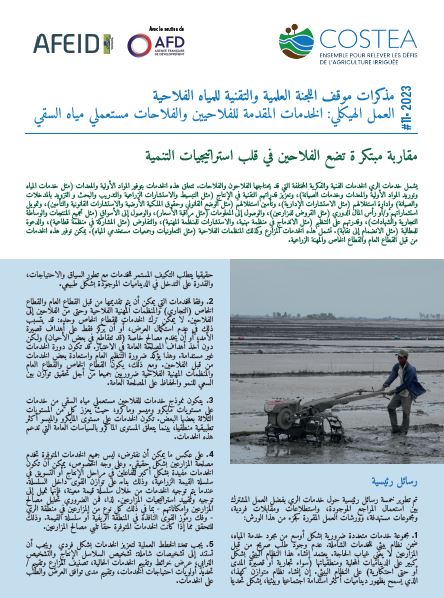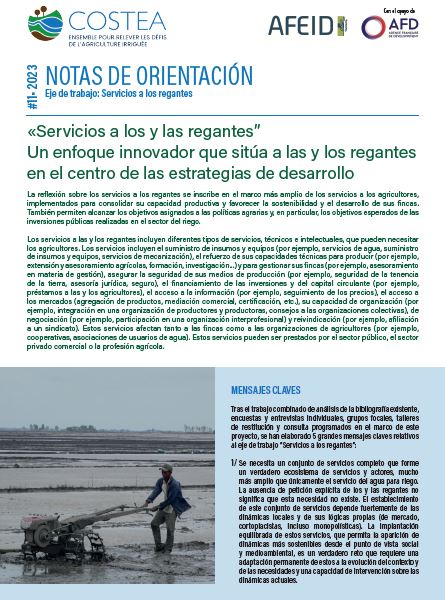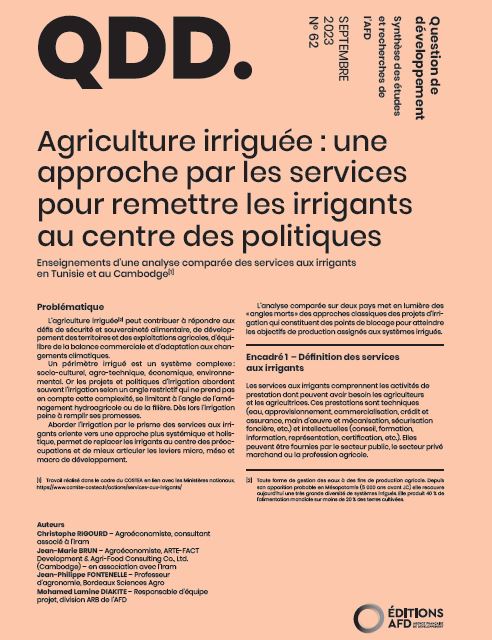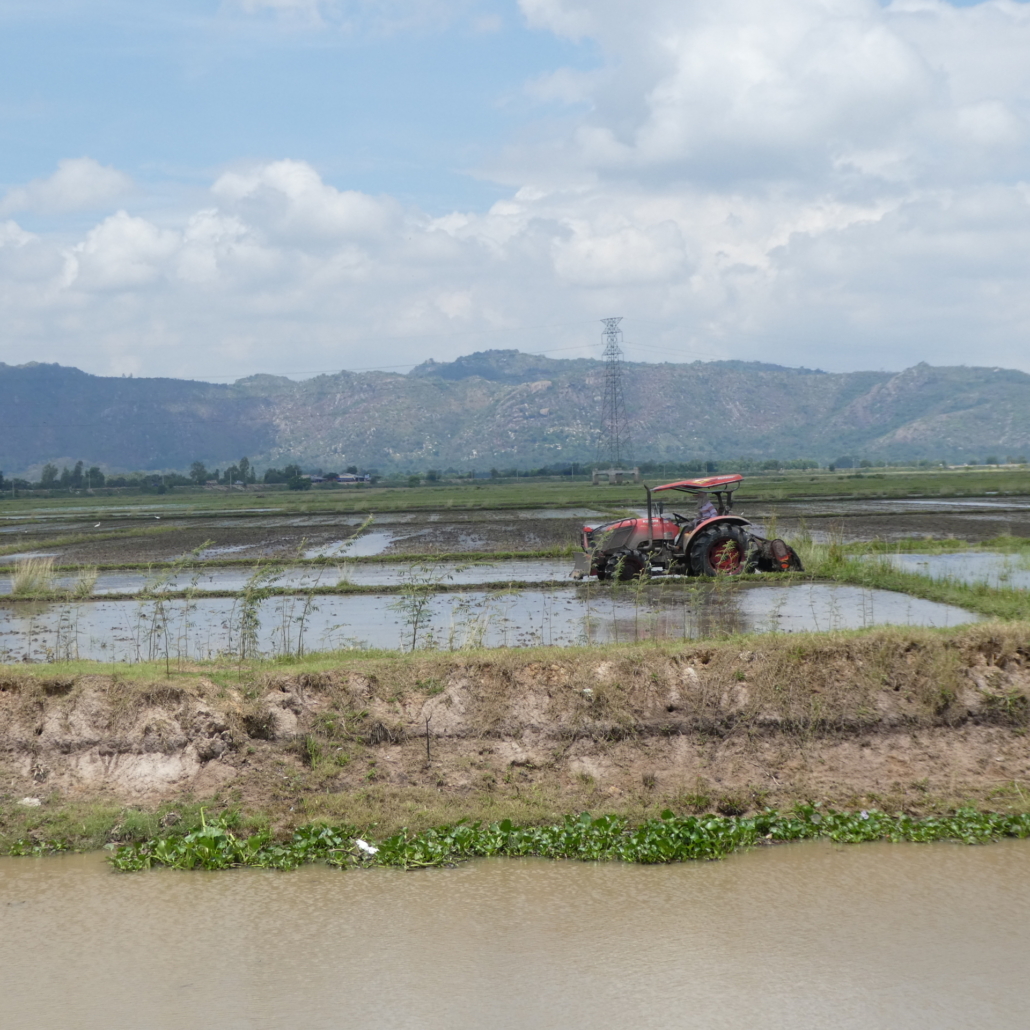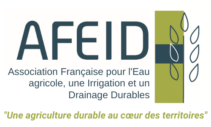Services to irrigators
Our main publications
Click on the images to download the final synthesis report with recommendations, the rose tool for services to irrigators and the action poster.
Why services to irrigators?
The focus on services to irrigators is part of the broader picture of services to farmers to consolidate their productive capacity and promote the sustainability and development of their farms.
The offer of services to irrigators includes a number of generic tools designed to meet the challenge of securing the productive potential of irrigating farmers. These tools are technical, informational, organisational, institutional and commercial, and integrated in the framework of agricultural policies. They can be applied operationally in the form of training, experimentation, organisation and rules to counterbalance the constraints specific to the development of irrigated agriculture. The needs of producers differ depending on the geographical and historical contexts and on the type of farm.
What do we do?
We want to propose an overall scheme for formulating and organising support to farmers through irrigation policies to maximise the impact. Our action is based on four successive steps:
- Characterisation of the current and potentially available offer of services to irrigators, based on a territorial diagnosis of the irrigated agricultural system that we have studied;
- Development of a brief typology of the farms in the irrigated agricultural system in order to characterise their respective needs;
- Prioritisation of these needs for each class of farm identified based on the typology produced and the results of the diagnosis;
- Formulation of a consolidated operational plan, specifying the types of activities to be maintained, and possible project ownership and project management modalities to optimise the sustainability of the inputs and methods implemented for each activity.
Our study zones are the Maghreb (Tunisia) and South-East Asia (Cambodia).
This action, launched in September 2020, was entrusted to the IRAM/Artefact/BICHE consortium and was completed in April 2022.
FURTHER READING
The preparatory documents:
The deliverables of the action:
